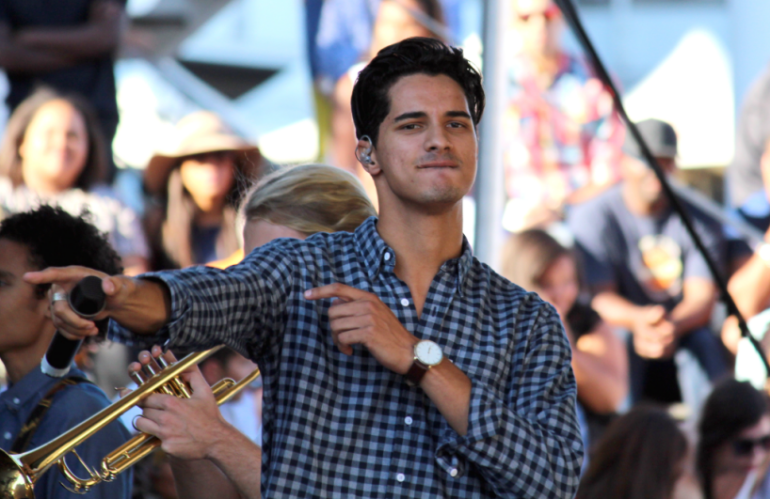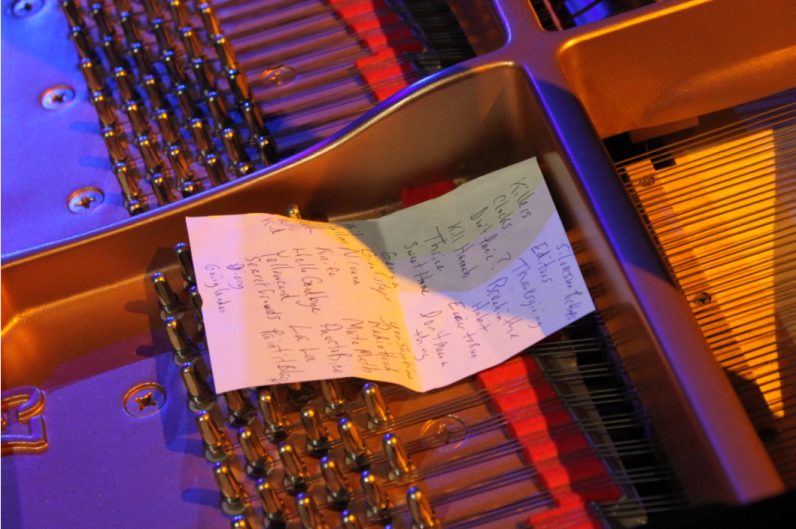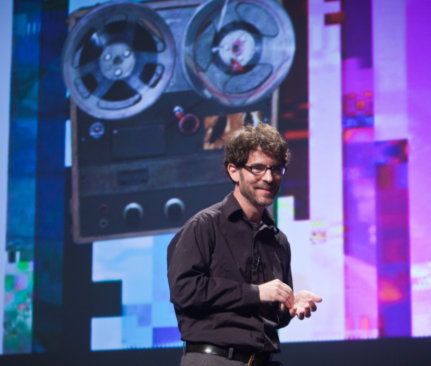Your personal music search space.
Augment your understanding of music.

______________________________________________________________________________

YMUSIC SEARCH ENGINE
MUSIC TALKS AROUND LISTENERS AND COMPOSERS
Music is more than a casual leisure, an art or the new way to increase the benefits of a company. It is all of that and even more. The music industry is a rich ecosystem in which everyone and everything has a specific place. From the composer to the listener, from psychology to spirituality, from art to science, get insights on each field of music, learning about craft or history, about human behavior or consciousness. A place is also given to ethical questions.
MUSICAL CULTURE IN ITS VARIOUS ASPECTS


Let the musical expression composers have put in their work speak to you! Try YMusic, your free personal assistant (it includes musical criteria to select music) and discover the elements that constitute musical expression, be it its texture, its tempo, etc.
What are the techniques that support musical expression?
What is musical expression?
All listeners are searching for different things in music, that is why they all listen to music differently. Music being nonverbal, it would be a nonsense for composers to establish a direct correlation between their emotions and musical notation. Composers do not have to feel specific emotions as they compose, and music only refers to itself. For those reasons, when composers are writing ‘molto espressivo’ in scores, they warn the listeners about their intention, but they do not say either why or in which way the music will be expressive, or which listeners will really find it expressive.
Generally speaking, what is musical expression? It is the ability to put emotion in musical communication, using elements like phrasing: a composer shapes a sequence of notes in a specific way to induce feelings that are transmitted by performers, who have their own musical sensitivity, even if they have markings showing how a musical piece is supposed to be performed. Listeners have a role to play: musical expression requires their attention, and music can be expressive for them only when they are attentive to the sounds and the musical syntax of a piece. Then listeners determine in which way the piece is expressive, partly depending on their own emotional context. And not all emotions are rational, they are not always naturally appropriate to social expectations. That is why musical expression must be analyzed according to its sonic properties, like the density of the music, its complexity, its predictability, its coordination level, etc.
Elementary aspects of musical expression in Beethoven’s work
Amongst music composers, Beethoven was one of the most directive in terms of musical expression: he added a high number of markings for performers. Beethoven is said to be the composer that expressed his deepest and most uncontrolled emotions, while Mozart was, at most, moving. But musically speaking, the way for Beethoven’s work in terms of musical expression was prepared by Bach, Mozart and Haydn’s musical innovations, which solved for Beethoven all issues related to orchestration and had found ways to create structures where the various sound colors would contrast and combine in effective ways: at the time of Beethoven, however, new ways to write melodies, to deploy harmonic language and to use counterpoint were found.
Beethoven wrote, in essence, like Mozart, but often in a broader style and with more emotional significance, which made his music more difficult to perform. The use of the piano, instead of the harpsichord, helped Beethoven to make his music more profound, often using the pedal of the piano, a pedal that the harpsichord did not have. Also, Beethoven abandoned in part the principle of clarity established by Mozart, being more interested in giving greater power to his music.

Listen to pieces of music whose tone speaks to your current emotions! Try the YMusic search engine, your free personal assistant (it includes musical criteria to select music) and find music whose mood is adjusted to your life!
Why do musicians love music?
Reasons enumerated by musicians concerning their love of music are numerous: music is a lifetime companion, a way to express the self, a way to cope with life’s challenges, a source of inspiration that drives the spirit, a means to overcome cultural differences and meet many people, etc. Music is present everywhere, from movies to churches, and whole sections of society are dedicated to musical activities, from learning to teaching, from composition to post-production, from publishing to distribution.
Practiced alone or in the framework of a group, at the professional level or not, it can captivate the musician. But what makes the difference between the amateur and the expert? First, professional musicians have the aptitude to learn a lot of new music at a rapid pace. Why? They have developed the ability to transcribe, a good ear, a capacity to prepare lists of musical pieces to learn in an efficient way and a good musical memory in different music genres.
What can music bring to the life of music listeners besides music itself?
A lot of researchers wrote and still write papers and do conferences explaining how listeners can get the most out of music in the framework of their psychological and social life. And marketeers study the evolution of the concept of fandom. Yet the most imaginary dimensions linked to that last notion are often neglected, seen as not sufficiently rational and intellectual. And they are not. What are these imaginary dimensions? Mainly they are all the elements that are linked to the persona of a musician, a persona that may be particularly newsworthy and colourful for pop stars, but actually, nowadays, even emerging artists, be it in the field of classical or popular music, have all got their own persona.
Musicians’ personas make music into a kind of magic. And they do not only attract the general public. Even people like music teachers may belong to a fandom, strictly speaking, without feeling ashamed. One of them testified on a sharing website that his life had dramatically changed after the discovery of ‘My Heart will go on’ by Celine Dion. From that moment, various songs performed by Dion and Dion’s persona accompanied him through all the major changes in his life: university entrance, army service, etc. It does not mean that he perceived the songs as a means of salvation. When he was sad, he was more interested in Dion’s saddest songs, and when he was happy the more optimist ones. More generally, one can say that, feeling sorrow, listeners tend to search for music that will allow them to create a musical imagery in relation to grief, unhappiness or regret; while feeling good, they want to listen to compositions which reinforce their positive feelings and their sense of emotional well-being.
Why is music a kind of magic?
Listen to the music written by Franz Liszt or the Beatles! Try the YMusic search engine, your free personal assistant (it includes musical criteria to select music)! So that your preferred titles in the music they wrote can lead you to similar pieces that you could appreciate too!
The birth and the meaning of fandom
Fandom is not a recent phenomenon and it was not even born during the 1960s with Elvis Presley. Actually, it first appeared in classical concert halls during the 19th century, when Hungarian composer Franz Liszt, coming from a modest background, became the first classical superstar. Even if the suffix ‘mania’ had not exactly the same meaning in the two words, because it had medical resonances during the 19th century, there was a ‘Lisztomania’ as, later, a ‘Beatlemania’: during concerts, fans of Liszt, more precisely women, had hysterical reactions to the pianist and his music. Liszt performed a broad keyboard repertoire, from Bach to Chopin. Women had his portrait, several tried to get some of his hair, etc. Playing the piano in a way that was described as hypnotic, Liszt, in some way, invented the profession of international concert pianist, giving thousands of concerts in eight years because of his exceptional musical memory and because he became an object of fantasy and secret desires.
In fact, fandom is a commercialization of desire, mainly through media. It is sometimes incriminated in distorting the relationship of people to their own expectations. It may happen that fans, wanting to establish personal contact with famous musicians or, at least, to follow them everywhere, neglect their own social reality, needs, health and wealth. Of course, fandom is generally associated with uncontrolled screaming reflecting an ecstatic state. But beyond the artists themselves, it is often the various life situations experienced by the fans that nurtures the fanatism. For example, Beatles’ fans were mainly adolescent girls who, most of the time, were forbidden to go out, as they were too young. Irreverent Beatles, singing they want to hold ‘their’ hands, were the perfect escape from routine and daily life. And when they went to concerts, more than listening to the music, it was all about participating in a ritual where they were celebrating their youth and their power, in one word, themselves.
Chatbots and the future of fandom
For fans, the virtual relationship with an artist and its erotic aspect is only a small part of fandom, where the idea of community may be important, as it decreases, during concerts, the social differences between fans for one evening. With the development of the internet, both fan clubs and social interactions between musicians and fans have increased. The commercial principles linked to fandom remain and, in a sense, when tthe fans are as interested in musicians’ personalities as much as by their music, fans endorse the part of the music industry that is about selling dreams.
But today, fandom has new means: fans visit musicians’ official websites, verified social media accounts and, in recent times, celebrity chat bots have appeared on the virtual stage: structured as question-and-answer services, these bots have extracted data from interviews given by musicians in order to capture the attention of fans at the moment of their choice. At this time, bots’ interfaces are made up of a group of cards containing questions the fans can click in order to get the answers they want.
The rise and the evolution of fandom during the last decades

Listen to the successful outcomes produced by a lot of music graduates over time! Try the YMusic search engine, your free personal assistant (it includes musical criteria to select music), it will help you to discern the styles you could love, in all that musical production!
What are the questions raised by students who want to major in music?
Do music studies lead to creation or replication?
More than students in engineering or law, young people who want to follow classes in a music college meet scepticism and resistance with their acquaintances and, sometimes, their friends and their families. However, encouraging people know that, when students are doing what they love, they should not apologize for it. When they spend years studying what they like, they do not have to be sure that they will earn high incomes. They just have to work hard. That applies to music as well as other major: majoring in music requires focus and dedication. Also, a music major leads to dozens of careers in music: composer, conductor and performer of course, but also music teacher, musicologist, music therapist, or, alternatively, music publisher, arts manager or music agent.
Music classes are fun for music students, because they chose what they wanted to study, however anything that is studied in college may be very challenging. Whatever the target of the courses are, it affects the students who follow them and their teachers. People who do not major in music sometimes talk about ‘mimicry’ and ask why one has to study music just to repeat what other musicians did. The fact is everyone is free to act according to own will. Also, majoring in music helps a certain percentage of students to compose their own works.
A practical major or not?
Students involved in a music major are studying music history, but they also practice music with teachers who are also performers and they manipulate sound with engineers. Students love to know more about the science that lies behind what music listeners are hearing. Also, they create pieces of music and feel their activity as meaningful for themselves. A portion of students regret that it is not possible for them to play live music as much as before. However a lot of them discover the benefits of music technology: often by doing music for years, they learn to use the software that will later help them to mix their music for the professional market even if they cannot afford to hire a sound engineer.
Also, sometimes, they do not directly feel the joy of rewarded effort. And they end up confessing that, even if they do not care so much themselves, money has a powerful grip on things in the music business. However those who, faced with this reality, are a little anxious, continue to be sure that they made the right choice, being driven by passion. Also, they can sometimes meet people they are going to stay in touch with for the rest of their life.
What are the questions raised by students who want to major in music?